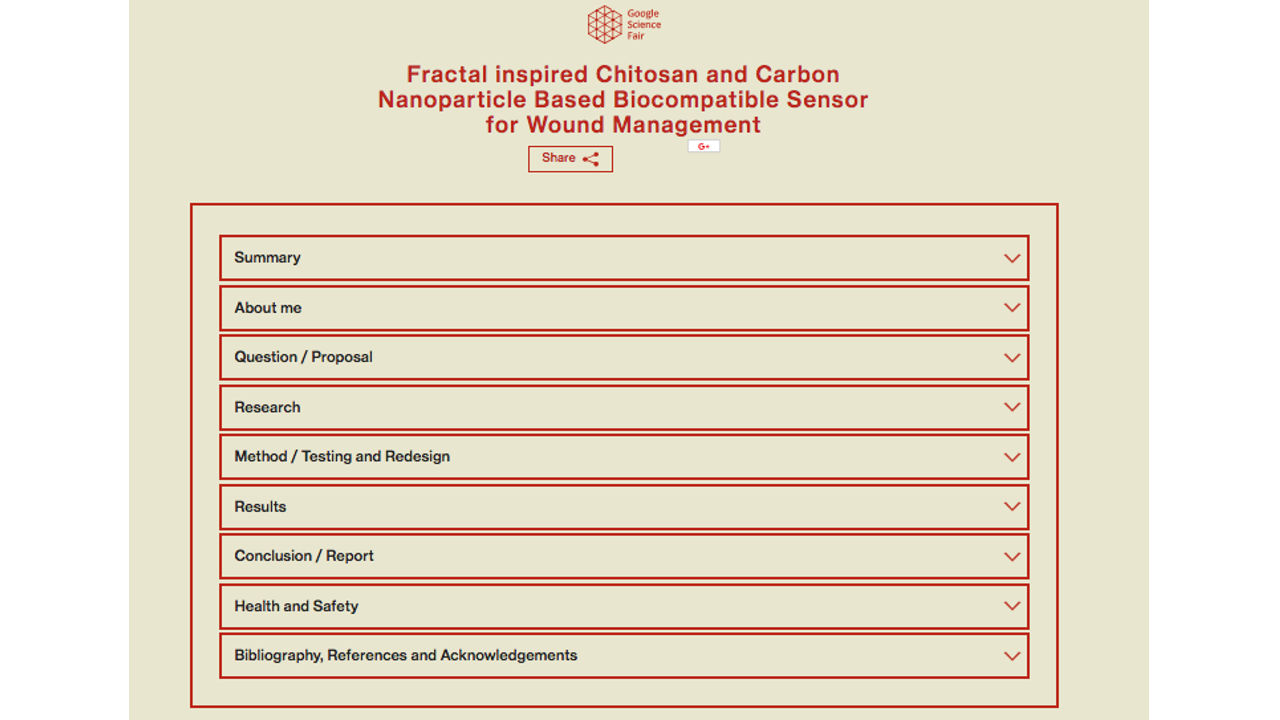Google Science Fair as my Biology Final Exam
The Google Science Fair designed in such a way that students are inspired to turn their thoughts and ideas into a format that address a gap in the world, and thus, change it!

Tools and ideas to transform education. Sign up below.
You are now subscribed
Your newsletter sign-up was successful
I have written in the past about how much I am enjoying teaching Biology this year. After graduating with a degree in Biochemistry, my first teaching job, and thus the subsequent 17 years, led me to the world of chemistry education.
Upon switching schools, the opportunity to teach a few courses of Biology surfaced. Two years in, I am humbled by how much I don't know/forgot, both related to content and pedagogy of Biology instruction, and how much exciting opportunity there is in the field.
Keeping the above in mind, I have been experimenting with a "Medical Case Study" approach to teaching the course, leveraging hypothetical patient intake exam symptoms, and subsequent student diagnosis to spark curiosity, and inspired initial research, around specific themes. Click here to read more.
After leveraging case studies as points of entry for inquiry for the past two years, students appear, in general, very excited about facets of science I did not expect.
[5 Ways to Embed Coding & Electronics into Your Science Curriculum]
For example, in researching patient symptoms, students are exposed to medical journals and pharmaceutical research to help validate their hypothesis and gain more information on the topic.
Given exposure to applicable, and important research has appeared to inspire my students to want to conduct their own research in a way that transcends that which can be found in a traditional school curriculum, textbook, or lab manual.
Tools and ideas to transform education. Sign up below.
To quote a few students just today (note: students call me by my first name)
"Ramsey, can we do a science fair project? I miss those..."
"Ramsey, the Diabetes article I we read was really interesting. I would like to do a similar study"
"Ramsey, have you heard of the Google Science Fair? Let's do that in our class."
I was drawn to the last quote above, re; the Google Science Fair as I had not heard of it. Turns out, Google sponsors a science fair that is incredibly well organized, and rather than motivated by poster boards or projects that mirror more "arts and crafts" than science, the Google Science Fair designed in such a way that students are inspired to turn their thoughts and ideas into a format that address a gap in the world, and thus, change it!
Serendipitously, the the deadline to submit for 2018 is December 12th, the day my final project (yet to be designed) is due in my 9th grade Biology class. The stars aligned!
So, this year (literally beginning today) I'm going to do the below with the hopes that the public audience will motivate better work, but also, more importantly, leverage the increased interest in scientific research that the medical case study curriculum mentioned above has inspired.
1. Introduce the Google Science Fair (Read rules, show past projects, etc.)
2. Assign each student the task of developing, and prototyping their own idea as the FINAL EXAM.
3. Use the format, already designed by the Google Science Fair, to guide the research process.
4. Require projects to investigate, or build upon, a concept we have explored this year from our curriculum.
5. Cross my fingers.
*Yeah yeah....there will be rubrics and stuff too. I'll share those as they are developed :)
Per #3, the Google Science Fair website includes past examples that provide great reference points for student work, and built in templates for rubrics and research design. As you can see in the screenshot below taken from a past project, the required format empowers students to truly embrace the scientific method and true research methods when conducting their projects. I am so excited to see where this idea goes. Carpe Diem!
cross posted at www.cyclesoflearning.com
Ramsey Musallam teaches science and robotics at Sonoma Academy in Santa Rosa, California, with the aim of fostering inquiry-based learning environments fueled by student curiosity. He presents widely on sparking student curiosity and teaching with technology. Musallam is a Google Certified Teacher, a YouTube Star Teacher, and a Leading Edge Certified Teacher. Watch his TED talk here and read his blog at www.cyclesoflearning.com.
